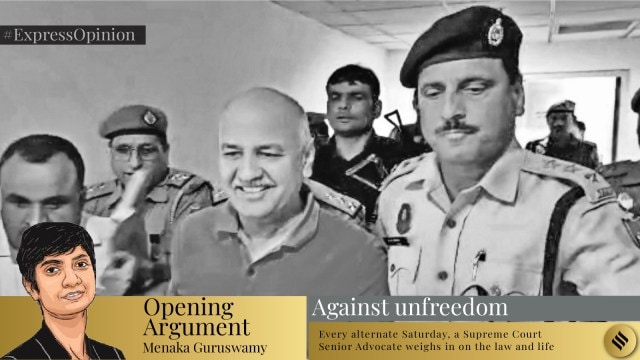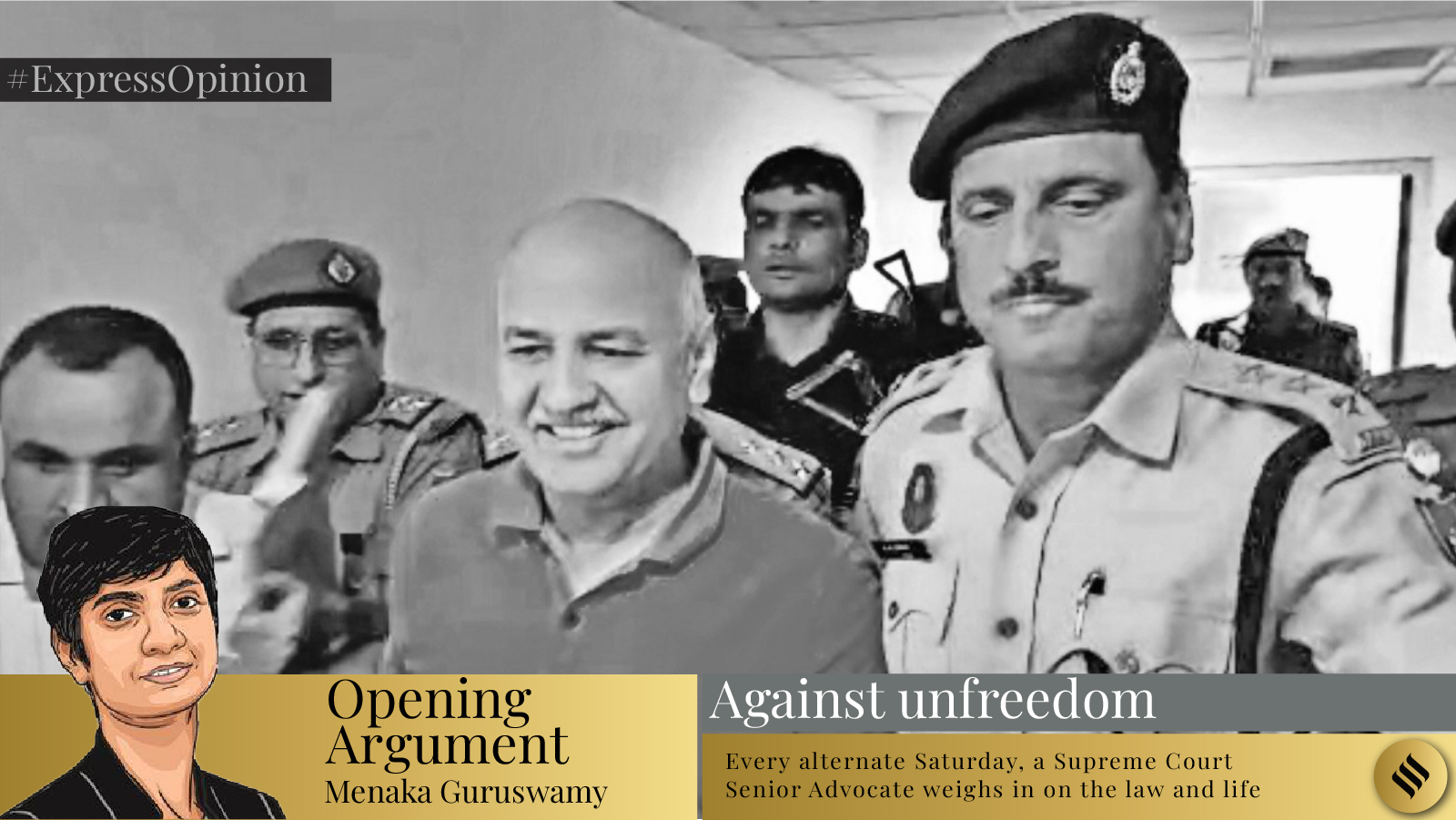
The Supreme Court granted bail to Manish Sisodia, Delhi’s former deputy Chief Minister, on August 9. Sisodia was arrested on February 26, 2023, by the Central Bureau of Investigation (CBI) and then subsequently by the Enforcement Directorate (ED) on March 9, 2023. He has been in jail for almost a year-and-a-half without being convicted of any offence and was still awaiting trial. The Supreme Court was hearing the appeal against an order passed by the Delhi High Court in May 2024 denying him bail.
Justices B R Gavai and K V Viswanathan heard the case, Manish Sisodia v Directorate of Enforcement (judgment dated August 9). This judgment is notable for three reasons. First, it reaffirms and reminds all courts in the country of the age-old principle that bail is the norm and jail, the exception. Second, the right to speedy trial must be respected and that keeping an accused behind bars for an unlimited period of time while awaiting trial violates his or her right to life under Article 21 of the Constitution. Finally, the right to bail in cases of delay coupled with incarceration for a long period should be read into the bail provisions of the Code of Criminal Procedure, 1972 (CrPC) and the Prevention of Money Laundering Act, 2002 (PMLA).
Let us first examine how the Supreme Court examined the issue of how other courts have disregarded the principle of bail being the norm while jail as an exception. The judgment captures incisively the troubles with the lack of grant of bail by the various courts, which has become the practice now. This passage merits being reproduced. The Court says: “…that over a period of time, the trial courts and the High Courts have forgotten a very well-established principle of law that bail is not to be withheld as a punishment. From our experience, we can say that it appears that the trial courts and the High Court attempt to play safe in matters of grant of bail. The principle that bail is a rule and refusal is an exception is, at times, followed in breach. On account of non-grant of bail, even in straightforward open-and-shut cases, the Supreme Court is flooded with a huge number of bail petitions thereby adding to the huge pendency. It is high time that the trial courts and the High Courts recognise the principle that “bail is the rule and jail is the exception.”
In the second prong, the Court referred to its previous hearings when it had been assured that the trial “would be concluded within a period of 6-8 months. The liberty was reserved to approach afresh if the trial did not conclude within the period of 6-8 months. The liberty is also granted in case the trial proceeded at a snail’s pace in the next three months.” This is significant as a trial, from commencement to conclusion, can often take years. This results in the accused spending many years in jail simply awaiting trial, or waiting for it to end. Setting up timelines of this sort and holding the state to account satisfies the urgent demands that the Constitution’s right to life and liberty imposes when an accused is imprisoned for long periods without conviction.
Finally, the judgment affirms that the right to bail in cases of delay, coupled with incarceration for a long period, should be read into Section 439 of the CrPC and Section 45 of the PMLA. This third layer of the judgment means that the high courts or sessions court must bear this principle in mind when considering bail applications under Section 439. The special courts tasked to hear money laundering cases must also keep the twin prongs of delay and long incarceration in mind when they consider bail applications under section 45 of the PMLA. This is fitting given that the right to bail has been under pressure, especially in money laundering cases.
Manish Sisodia’s confinement was a long one. On July 20, 2022, on the basis of a letter written by the Lieutenant-Governor of Delhi alleging irregularities in the framing and implementation of Delhi’s Excise Policy for 2021-2022, the Ministry of Home Affairs directed an enquiry into the matter, and Sisodia was arrested nine months later. He had multiple bail applications rejected — first in May 2023 and then subsequently every few months by lower courts and the High Court.
In a June hearing of Sisodia’s bail application, the Supreme Court was assured by the state in question that the chargesheet would be filed by July 3, and the trial would then proceed. As soon as the chargesheet was filed, Sisodia approached the Supreme Court for bail again. His lawyers argued that between the ED and CBI, over 493 witnesses would need to be examined and over 69,000 pages of documents would have to be perused. And that given the large number of witnesses and documents, the trial would not commence anytime soon.
Among the many factors that the state cited for the delay is the fact that Sisodia’s lawyers filed many applications, including those for “un-relied upon documents”. The non-sharing of what may be exculpatory evidence, or documents that may prove the innocence of the accused, is deeply problematic and violates the right to a fair trial. This is often done by the state, as it shares with the defence only the documents that bolster its own case. The judgment recognises this practice and notes that none of the applications filed in this regard were found by the trial court to be frivolous.
The Sisodia judgment will go a long way in protecting the rights to life and liberty guaranteed by our Constitution. It reasserts that cardinal principle that is the backbone of the criminal justice system — bail is the norm and jail the exception.
The writer is a senior advocate at the Supreme Court of India



